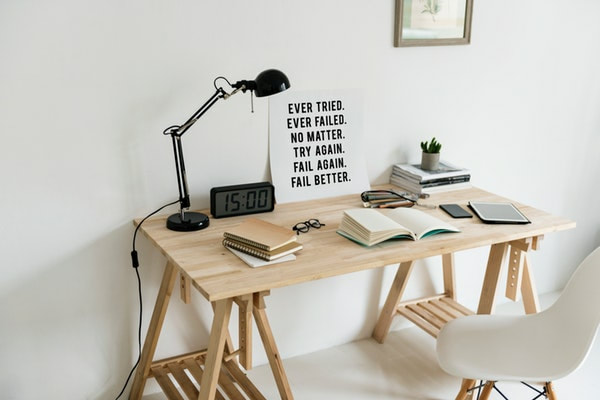|
If you’ve never been a planner, then goal setting seems like a difficult task. Not only does it make you confront what you want (which can feel uncomfortable to admit if your racked with self-doubt), goal setting appears like an additional hill to tackle, before you have even started to work on the actual mountain that is your goal. And what if you fail? An unmet goal could seem like an unpleasant reminder of what might have been. But you don’t have to be a person who loves a five-year plan to set goals for yourself. Why not start small? Here are some (small) steps to help you get started. Start with A goal that means something to youNot a goal that gets you an impressive job title. Not a goal that makes your parents happy. Not a goal that puts your career or material possessions on par, or above your peers. Set a goal that is meaningful to you. This actually might be very small, like a daily intention of peace or focus. A goal that aligns with your values and purpose is much more achievable than working towards something that holds no weight for you. Other people can give you plenty opinions of what you should be doing, but no one except for you understands what you want to do, and more importantly why. Your ‘why’ is the insight into the true meaning behind your goal. Start Macro, Get Micro OK, you might have a clear, but lofty goal (like getting a new job, starting a business or making more time for your health and wellness) but you don’t know where to begin. Have a go at reverse engineering the goal and work backwards from that end point to now. So if improving your health and fitness is an overarching goal, you might use completing a marathon as your ultimate focus. But obviously you won’t want to run that race next week. Work backwards to understand what you need to get there - from crossing the finish line and the end of training, to beginning that training with one piece of exercise a week. Make sure you’re also identifying any obstacles that might hinder your progress - do you even have any sneakers? Starting small doesn’t mean you’ll never get to the big goal, it means that you start with something achievable and important - these are all steps to meeting your goal and setting you up for success. And remember to acknowledge every milestone. Celebrating small wins actually helps motivate you to keep moving forward. Share your goals and get feedback Once you’ve reversed engineered your plan, don’t keep it to yourself. Not only by sharing what you are working towards with people you trust provide you with accountability partners and cheerleaders, you also get the opportunity to get feedback on your plan. Did you miss any steps, or is there a shortcut for one of your actions? A community can help you get another perspective on what you want to achieve, and also support you on your journey.
Expect the unexpectedThere will be things that happen along the road that you can never account for. Some will help you, some might be set backs. Being aware of these possibilities helps you to approach your goals with a more flexible attitude, and can remind yourself not to beat yourself up if there’s a bump in the road. With this mindset, you’re more likely to be quicker to identify solutions to any roadblocks, rather than dwelling on them and getting stuck. If you're finding it difficult to meet even your small goals, being flexible also means you are more likely to change direction to meet the task at hand. Think of your goals as living things, they grow and change and are impacted by the world around them. Therefore being flexible in your approach allows your goals the space they need to develop. Be patient. Forget all the stories of being an overnight success, and focus on the success - no matter how long it takes you to get there. Why not me? We sometimes avoid setting goals, because it’s scary to put out in the world what you want. It’s even scary to admit it to yourself. You might even start going down a comparison trap, thinking of all the reasons why you aren’t the right person to meet that goal, and listing everyone else you consider to be better than you. A goal doesn’t always have to mean competition. Again, if your goal is something meaningful to you, it should evoke excitement and not agitation. A meaningful goal is yours alone, so plan for your success not failure. Starting with small steps and small goals can be good if you get easily overwhelmed or easily demotivated. Everything has a beginning, so even if it's small - start anyway!
2 Comments
Leave a Reply. |

